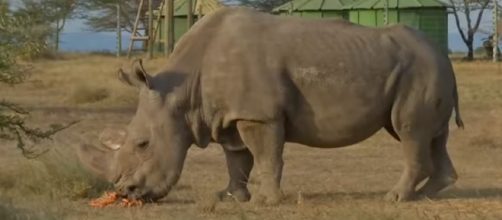The last male northern white rhino on earth has sadly passed away after being put to sleep by veterinarians at Kenya's OI Pejeta Conservancy. The BBC reported that Sudan, who was one of only 3 individuals of his sub-species left (the other two being his daughter and granddaughter), was said to have been suffering from age related muscle and skin conditions.
Sudan gained worldwide recognition when he became the last male of his sub-species - 'the last man standing.' Sudan was even given a Tinder profile in order to raise funds for conservation efforts, earning the nickname 'the most eligible bachelor in the world'
Conservation attempts
The 45-year-old rhinoceros was was named after the country in which he was born.
At the tender age of two, he was moved to a zoo in Czechia, where he remained until 2009 and was part of a group of four members of his kind - two males and two females. They were flown to the Kenyan reserve from a Czech zoo in the hope that a more natural environment would stimulate mating success and save the species after decades of unrelenting poaching.
Rhino breeding attempts failed
The second male died from natural causes in 2014, leaving only Sudan and his two relatives - Najin who is 27, and her daughter Fatu, who is 17. Sudan's passing marks a truly upsetting day in the history of our Earth. The conservancy's chief executive, Richard Vigne, commented, "he was a great ambassador for his species, for the work he did to raise awareness of unsustainable human activity".
Is there any hope left?
There is still a microscopic glimmer of hope for the sub-species though. Genetic material was collected from Sudan, as well as other males who have now died. Eggs have been taken from the younger females in the hopes of successfully using IVF to preserve the northern white rhinos. This process is expensive, with some estimating that it could cost around £7 million.
This majestic sub-species of rhinoceros were widespread throughout the northern areas of the African continent, ranging from Sudan, Chad, Uganda and the Central African Republic to the Congo. They were placed under severe pressure from poachers throughout the 1970's and 80's during the poaching epidemic. Poachers killed them for their horns, where they have been sold throughout illegal Asian markets and used in traditional Chinese medicines.
The death of this beautiful animal should make us stop to reflect on the way we treat or fellow animals. Our unsustainable approach to everything we do is leaving a path of destruction in our wake. As Theodore Roosevelt once said, "There is no more important task, than leaving this land a better land for our descendants".


